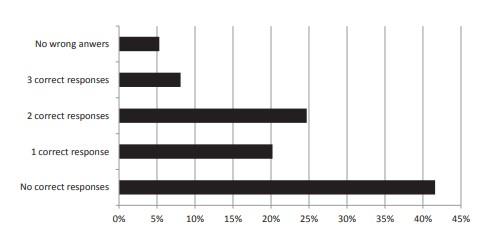The Connection Between Breast Density and Breast Cancer
CSR researchers conducted a study on breast density since breast density is known to reduce the sensitivity of mammography and is a moderate independent risk factor for breast cancer. Virginia is one of 24 states that require patients to be notified if they are found to have dense breasts, but little is known about awareness among women about the potential risks of breast density. The goal of this survey was to assess public knowledge about breast density and its impact on mammography and breast cancer risk. All phone surveys were conducted by trained, female interviewers from June through October 2013, producing a random sample of 1,024 Virginia women between ages 35 and 70 years without breast cancer, reached by landline and cell phone. The phone interview was 24 minutes long on average.
After performing bivariate and multivariate analysis, the data show that more than 90% of women in this study said they had done something in the last 5 years to check themselves for breast cancer. Three-fourths of these women had a mammogram in the last 5 years. More than 50% did breast self-examinations, and 40% have had some type of clinical breast examination. In an open-ended question, women were asked to list any factors they knew that either increased or decreased a woman’s risk of developing breast cancer. Only 0.8% of the respondents mentioned breast density as a risk factor (ranking 22 by frequency of mention) and only 25% of the women in the study said they had heard anything about the relationship between breast density and breast cancer risk.

Importantly, the results show that being notified about one’s breast density does not equate to understanding what breast density implies for breast cancer risk or mammogram accuracy. The recent move in Virginia to notify women about their breast density assumes that, given better information, women will make better choices about their breast health. The study results show, however, that merely informing a woman about her breast density does not provide adequate information. The results point to a need for much broader efforts to raise awareness among women of what breast density implies for their cancer risk and their choice of screening practices.
For the full report, download the file below.


